How old can you get a tattoo?

It's no secret that modern children spend a huge amount of time on social networks. And there are fashionable young stars, bloggers, whom the younger generation is trying to match. One of the striking parts of the celebrity image is a tattoo. Therefore, it is not surprising that children who have not even graduated from school are already striving to fill their wearable pattern. Is it possible at all, and what is the risk, we will consider in this material.
Why is it impossible to get a tattoo under 18?
Rarely will a parent be delighted that his minor child decides to get a tattoo. Adults understand that this decision may be dictated by just a fleeting trend of fashion or just a whim, but you cannot explain this to a teenager - everyone knows what youthful maximalism is. Therefore, it is important here not only to prohibit beating a tattoo, but also to give weighty arguments.

Physiological causes
Until the age of 21, the human body is in a violent phase of development. Growth and outlines of the figure change. The guys have pronounced muscles, the girls - feminine roundness. Some parts of the body are particularly deformed, for example, arms and legs. A tattoo on a teenage body will change with it: the contours will blur, the image itself will be distorted, the colors will fade. Eventually it will look like a blurry decal.
Another important aspect is increased sensitivity to pain. Even adults find it difficult to sit through a tattooing session, let alone children.
Plus, in a growing body, a negative reaction to the dye may occur, and then long and expensive treatment cannot be avoided.
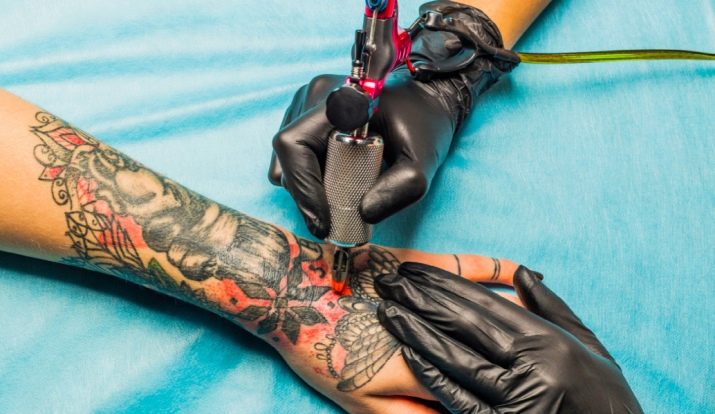
Psychological moments
Any teenager is a very impulsive person, acting "at will" and unacceptable to any prohibitions. Therefore, very often, tattoos are done simply contrary to parental instructions, out of spite. Do not forget about the first love, about the idols, whose names or images are used for tattooing. Inscriptions are also very popular, a certain symbolism that means something to a teenager at the moment. And here lies the main "pitfall" - importance only at this particular moment in time. It is far from the fact that it will be as high in a year or in six months. And the pattern will remain on the body.


For a matured person who has changed priorities, a "teenage" tattoo can cause a lot of trouble: will look comical, inappropriate, pretentious and even stupid. Problems may arise when entering a university, when applying for a prestigious job, communicating with a certain circle of people, etc.
Therefore, parents are very it is important to calmly talk with the child and explain why it is worth waiting and not getting a tattoo on the first impulse.
You can be allowed to make a temporary henna tattoo in order to "try on" the selected pattern and wear it for a while.



What do you need to get a tattoo for a minor?
If, nevertheless, the child's desire to get a tattoo has not disappeared, and the parents have stopped protesting, the question arises: will the tattoo artist take on this business? How is this issue regulated in general in Russia from a legal point of view?
Let's turn to the Civil Code of the Russian Federation. It has a concept of legal capacity, whose onset coincides with reaching the age of 18. Thus, a teenager will not be able to sign up for a session in the salon on his own.


However, the same code contains articles stating that financial transactions concluded by minors from 14 to 18 years old must be under the control of their parents, guardians or other persons who have the status of legal representatives. Therefore, at the age of 14, 15, 16 and 17, it is allowed to get a tattoo in the company of one of the aforementioned persons, or to bring his written consent to the session.
As for young children 12 and 13 years old, the Civil Code of the Russian Federation also mentions them. They have the right to make small household transactions that satisfy their daily needs, for example, pay for travel on public transport, buy themselves food, stationery and educational literature, clothes. Tattooing is not included here... The only option for them is a temporary tattoo. This can be henna drawing or gluing a special decal.
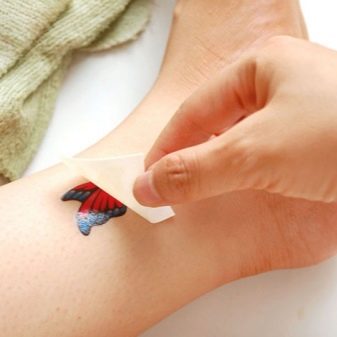
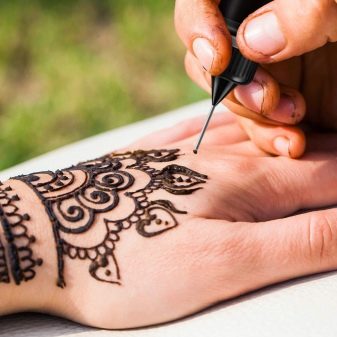
By the way, do not believe would-be masters who call "temporary" tattoos, stuffed with pigments for permanent makeup. A feature of these dyes is their gradual disappearance from the skin, but with one big caveat: if they were used for tattooing on the face! Over time, they really turn pale and "go away" from the lips, eyelids and eyebrows, which is associated with the specificity of local tissue metabolism. If such pigments were applied to the body, over time they will lighten, and the tattoo will turn into one continuous spot of indistinct color that will not disappear anywhere. It will be possible to withdraw it exclusively with the help of a laser - that is, in the same way as a regular tattoo.
Not a single self-respecting specialist will break the law in order to follow the lead of a teenager.
However, if the parents give written consent to the procedure and personally bring the child to the salon, the responsibility falls on their shoulders, and the tattoo artist will have the right to do his job.

Here's what should be stated in the written permission:
- passport data of the parent (legal representative), as well as data of the child's birth certificate;
- residence address;
- contact number;
- Full name of the parent and child, date of birth of the latter;
- permission (application) for the procedure is written in free form, but it must necessarily contain a clause about the absence of any claims to the master;
- date, signature.
Copies of the above documents must be attached to the permit.
If suddenly something goes wrong, with a written consent, the master will protect himself from reimbursement of the cost of the tattoo, as well as from the payment of moral damage and the procedure for drawing down.

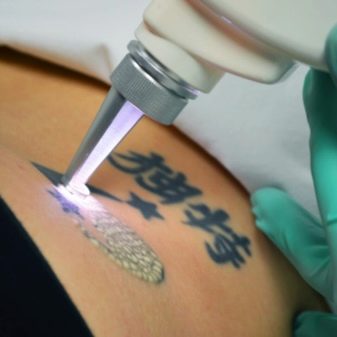
There are a few more important nuances that need to be mentioned:
- depending on the location chosen for drawing the picture, the teenager may have to undress, and this can be classified as lecherous or sexual acts committed against a minor;
- in the process of getting a tattoo, damage to the epidermis will inevitably occur, not related to the provision of medical care, which can be presented as deliberate self-harm.
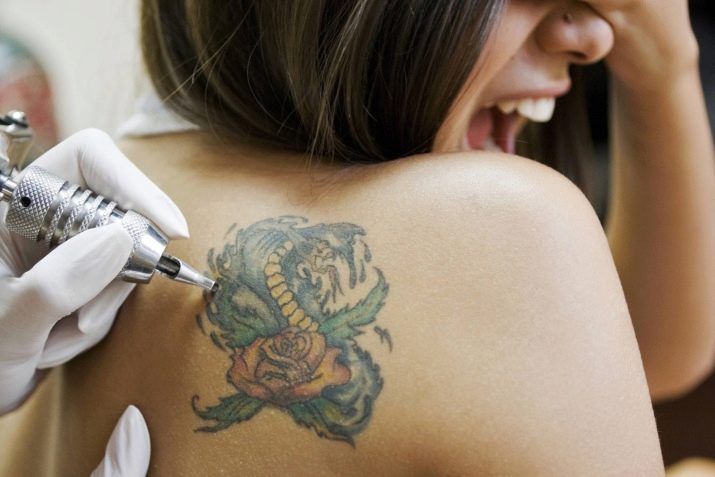
Some especially cunning and thoughtful teenagers think that without the permission of their parents they can visit a novice craftsman who works at home, who will meet them halfway and fill the picture they like. So, doing this could be a huge mistake... Firstly, in home tattoo rooms there is no proper observance of sanitary and hygienic requirements, it is not known what tools and materials the master works with, what clients visit him. Secondly, it will not be possible to hide the tattoo from your parents' eyes forever, and when they find out who and under what conditions tattooed you, they will have the right to go to court for full compensation for the damage.

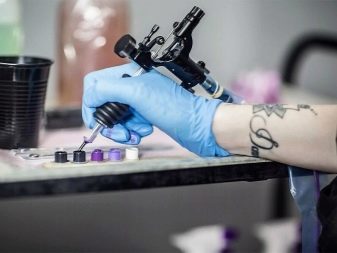
When is it better to get a tattoo?
Experts consider the period from 18 to 25 years old to be the optimal age for applying underwear drawings. There are several reasons for this.
- The main body formation ends, its growth stops. Pictures normally "take root" on young and elastic skin.
- At the same age, the pain threshold rises. And if a teenager is unlikely to sit out a full tattooing session, tired of enduring pain, then the matured individual will endure it much easier. Although here you still have to take into account the personal characteristics of each person.
- The choice of pattern will be more deliberate, not impulsive. There will be an understanding that the drawing will remain on the body for life.












